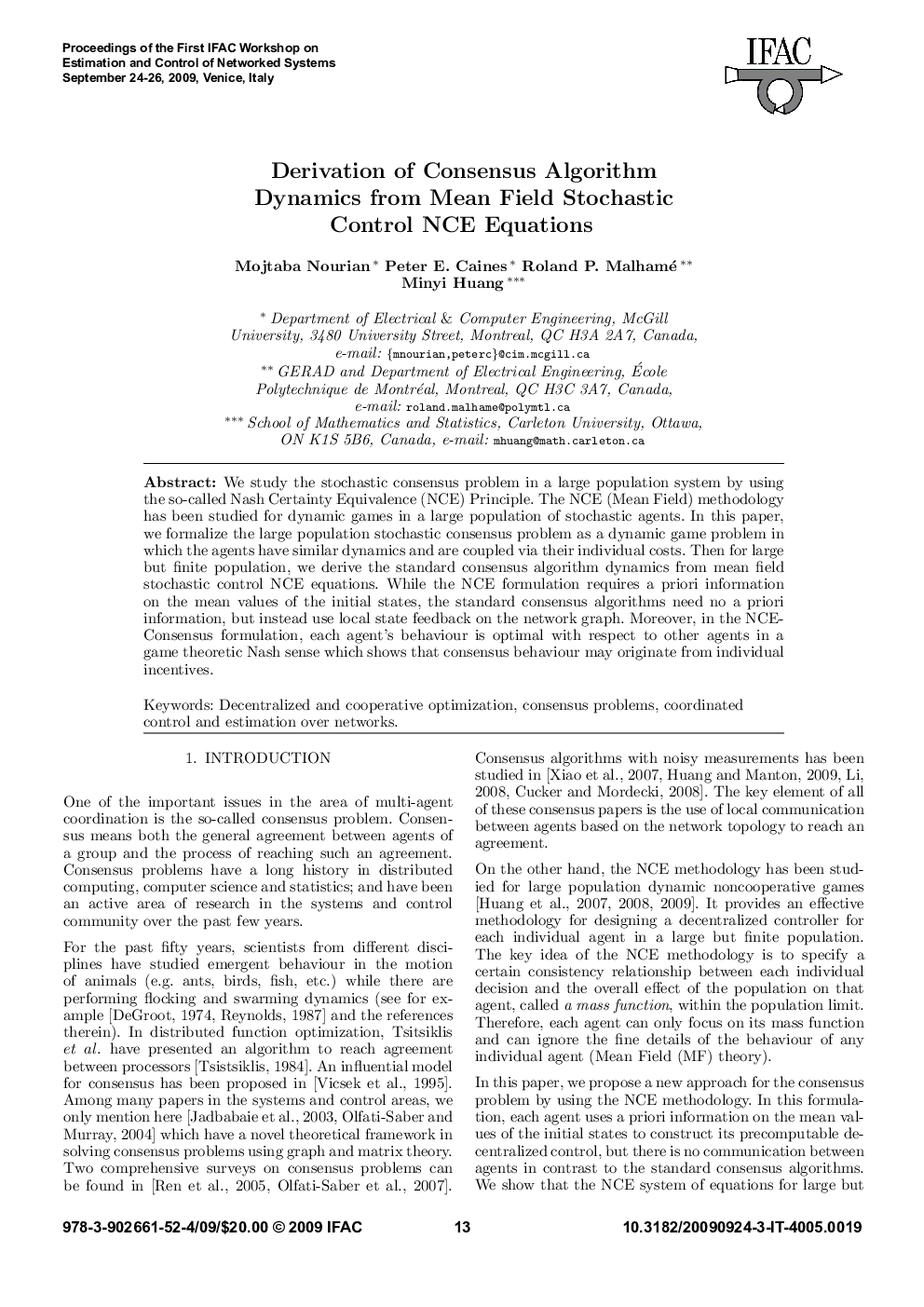| Article ID | Journal | Published Year | Pages | File Type |
|---|---|---|---|---|
| 717820 | IFAC Proceedings Volumes | 2009 | 6 Pages |
We study the stochastic consensus problem in a large population system by using the so-called Nash Certainty Equivalence (NCE) Principle. The NCE (Mean Field) methodology has been studied for dynamic games in a large population of stochastic agents. In this paper, we formalize the large population stochastic consensus problem as a dynamic game problem in which the agents have similar dynamics and are coupled via their individual costs. Then for large but finite population, we derive the standard consensus algorithm dynamics from mean field stochastic control NCE equations. While the NCE formulation requires a priori information on the mean values of the initial states, the standard consensus algorithms need no a priori information, but instead use local state feedback on the network graph. Moreover, in the NCE-Consensus formulation, each agent's behaviour is optimal with respect to other agents in a game theoretic Nash sense which shows that consensus behaviour may originate from individual incentives.
